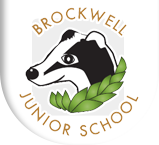![]()
Pure mathematics is, in its way, the poetry of logical ideas.— Albert Einstein, German theoretical physicist
The study of mathematics, like the Nile, begins in minuteness but ends in magnificence.
— Charles Caleb Colton, English cleric, writer and collector
Mathematics: acquiring fluency in mathematical concepts, thinking critically, reasoning and problem solving.
Our mathematics curriculum equips pupils with tools that include logical reasoning, problem-solving skills, and the ability to think in abstract ways.
By adopting some of the principles of a mastery approach, we aim to provide children with all the necessary skills and knowledge to become numerate and confident to tackle mathematical problems independently. We believe all children can achieve in maths. We block areas and teach them so much practice is given and learning secured. Whenever possible same day intervention is offered to help some keep up. We use a range of engaging online and other resources to ensure mathematics is exciting. White Rose materials guide teacher planning along with a range of concrete apparatus and other schemes enabling teachers to plan to an objective in the most effective way.
We use a range of teaching methods to rehearse mental calculations and a variety of formal and informal written strategies. Fluency, reasoning and problem solving, alongside opportunity to practise, are routine aspects of maths learning. Children are generally taught in mixed ability groups for their daily maths lesson. They move from counting reliably to calculating fluently with all four number operations. Children will use a wider range of mathematical language, diagrams and statistical charts. They extend and secure their use of mathematical language, using it to talk about their methods, explain their reasoning when solving problems and applying it during investigations. Progress is monitored in termly target setting and Pupil Progress Meetings (PPM).
Guided by the National Centre of Excellence, children benefit from self-assessment and immediate feedback with planned interventions. Each year, children are assessed against age related expectations in order to accurately report to parents. We have a range of resources in school including published schemes and online subscriptions. Homework linked to online resources may be set by teachers.
Intent Implementation Impact
Year Group Progression Maps
Year 4 Maths Progression
Year 5 Maths Progression
LINK FOR TEACHERS TO MATHS HUB ASSOCIATION
LINK FOR TEACHERS TO WHITE ROSE MATHS
ADDITIONAL MATHS WEBSITES & ACTIVITIES
www.interactive-resources.co.uk (Brockwell)
www.topmarks.co.uk
Doodlemaths – If your child has an account, this is a priority activity.
https://www.transum.org/
https://www.khanacademy.org/
https://mathsbot.com/doNowMenu
https://www.timestables.co.uk/
